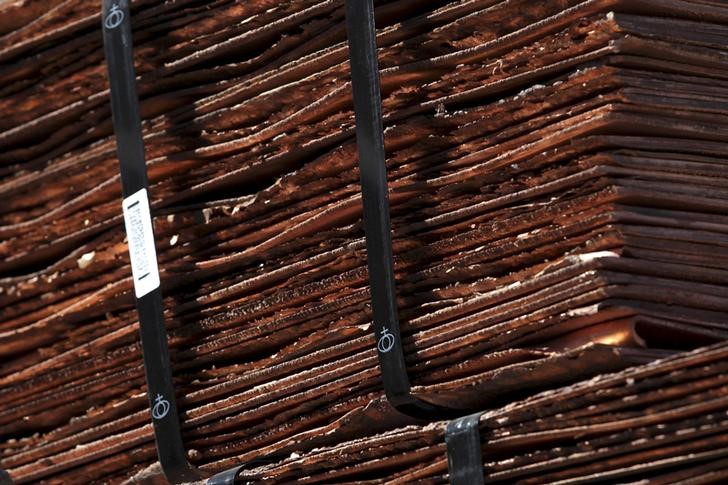Investing.com - Copper futures fell to a one-week low on Wednesday, as persistent worries about future demand from top consumer China weighed.
Copper for December delivery on the Comex division of the New York Mercantile Exchange shed 1.1 cents, or 0.45%, to trade at $2.351 a pound during morning hours in London. It earlier fell to $2.341, the lowest since October 21. On Tuesday, copper inched up 0.5 cents, or 0.21%.
Copper prices have been under pressure in recent weeks as fears of a China-led global economic slowdown spooked traders and rattled sentiment.
China's economy grew 6.9% in the third quarter, according to data released earlier in the month, the first time since the global financial crisis that the Asian nation's gross domestic product has grown less than 7%.
The weak data prompted the People's Bank of China to cut its benchmark interest rate by a quarter percentage point late last week, the latest in a series of measures aimed at stimulating economic activity and boosting growth.
It was the sixth rate cut over the past 12 months, fueling concerns that economic growth is weakening more than is currently expected.
Market players now looked ahead to the outcome of a four-day meeting of China’s top Communist Party officials later this week, amid expectations for further economic reforms.
The Asian nation is the world’s largest copper consumer, accounting for almost 40% of world consumption last year.
Elsewhere in metals trading, gold futures for December delivery tacked on $6.20, or 0.53%, to trade at $1,172.00 an ounce, as investors looked ahead to the Federal Reserve’s monetary policy statement due later in the session for fresh signals on the timing of a U.S. interest rate hike.
The Fed is widely expected to hold off on raising interest rates at the conclusion of its policy meeting later in the day. The central bank releases its post-meeting statement at 2:00PM ET and investors will be looking for signals on the possibility of a December rate hike.
Concerns over a global economic slowdown led by China and its impact on U.S. growth prospects have prompted market participants to push back expectations for a rate increase to March 2016, though a few haven't completely ruled out a move in December.
Market players have been trying to gauge when the Fed will raise interest rates for the first time in nearly a decade after recent economic reports offered a mixed picture of the U.S. economy.
The timing of a Fed rate hike has been a constant source of debate in the markets in recent months.
